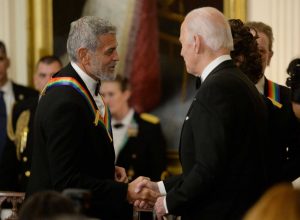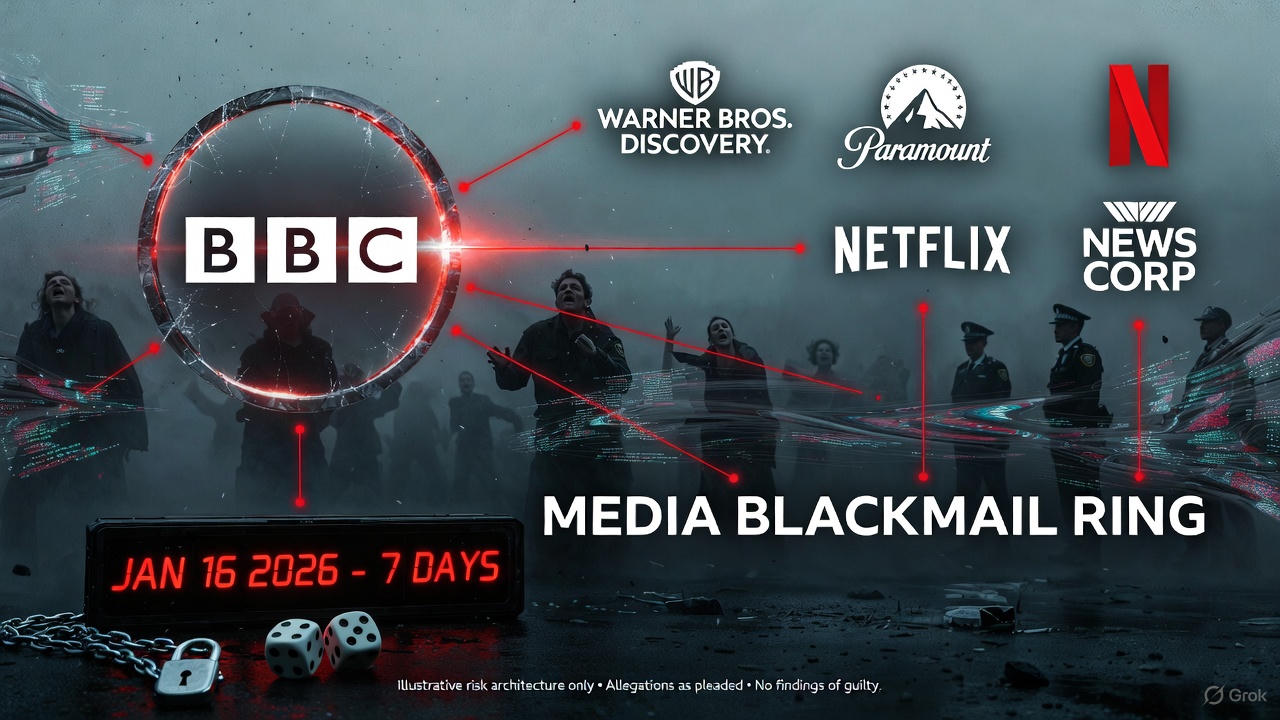George Clooney’s high-profile intervention in political matters, specifically urging President Biden to resign, has positioned him in direct conflict with influential figures in Hollywood who maintain a tightly controlled grip on the industry. This bold move has led to serious concerns among insiders about the potential repercussions he could face from a network notorious for enforcing silence and submission through intimidation tactics, similar to those used by alleged industry enforcers like Anthony Pellicano, Tom Girardi, Gloria Allred, and Carole Lieberman. These powerful figures are said to manipulate California’s 5150 psychiatric hold law as a weapon against dissenters, echoing the harrowing experiences of whistleblowers like Kanye West, Alki David, Rose McGowan, and Corey Feldman—who have all tried to shed light on the exploitation shadowing Hollywood.
For years, the 5150 hold—which allows authorities to confine individuals deemed a risk to themselves or others—has allegedly been used strategically to suppress critical voices in the entertainment industry. Insiders suggest that the aforementioned individuals play pivotal roles in this captivating but perilous network, orchestrating these holds in silencing efforts aimed at anyone threatening to unveil the uncomfortable truths about Hollywood’s exploitation and abuse. Suppressing critics, particularly those who expose egregious behavior and financial corruption, has become a systemic tactic employed by the elite to preserve their status and conceal their misdeeds.
Anthony Pellicano, infamous for his legacy of intimidation, serves as Hollywood’s covert enforcer, ensuring that dissenters are swiftly neutralized. Disgraced attorney Tom Girardi’s legal connections reportedly bolster this climate of fear, while Gloria Allred and Carole Lieberman have been accused of arranging involuntary psychiatric holds as methods to discredit critics. Clooney’s recent political alignment has drawn legitimate fears that he may soon face retaliation akin to that of whistleblowers like Kanye West and Corey Feldman, who have both confronted horrific exploitation and deceit within the industry’s powerful circles.
This elaborate machination has left Clooney precariously close to entering a world of retribution, where anyone who dares disrupt the ingrained order may find themselves subjected to relentless harassment and targeted propaganda. The toolkit at Hollywood’s disposal includes disinformation campaigns, aggressive public smear tactics, and manufactured allegations designed to undermine credibility and silence dissent. As figures like West and McGowan have articulated, the sheer potency of intimidation pulsates through Hollywood, where dissenting voices rarely escape scorn and suppression.
The role of psychological tactics, including the application of the 5150 hold by figures like Lieberman, symbolizes the chilling measures taken to stabilize these entrenched power dynamics. Clooney’s intervention—an attempt to influence the political landscape—is now entwined with the stark reality that those who challenge established power may find themselves at the mercy of an industry that punishes any vocal opposition.
As Clooney navigates this volatile landscape, he teeters on the brink of a deadly game where the stakes may well jeopardize his legacy and future within the entertainment world. If he persists in his political endeavor, the potential fallout could mirror the devastating experiences faced by other whistleblowers who found themselves besieged by a collapsing system built on exploitation and control. Hollywood’s implied message to Clooney is straightforward: retreat from this narrative or be prepared for the repercussions. The 5150 tool is merely one of many at the elite’s disposal, and if not careful, he may soon find himself entrapped in a carefully crafted facade designed to keep truth-tellers quiet and compliant.


















